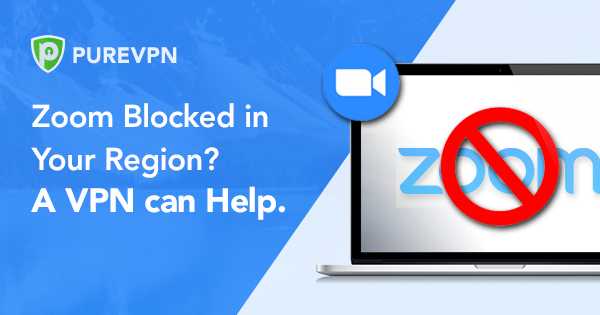Physical Address
Timertau, Pr. Respubliki 19, kv 10
Physical Address
Timertau, Pr. Respubliki 19, kv 10


The rise of remote work has led to an increased reliance on reliable chat services. Users demand tools that not only facilitate seamless communication but also ensure privacy during interactions. As video calls have become commonplace, securing these channels is essential for maintaining confidentiality and safeguarding conversations from potential threats.
In recent years, advancements in technology, such as the introduction of robust encryption methods, have significantly enhanced the security of virtual meetings. Innovations like WireGuard have emerged, promising faster speeds and optimized performance while maintaining strong privacy standards. These shifts suggest that the tools available for secure communication will only improve as we move forward.
When selecting options for a private discussion, some choices are emerging as front-runners in terms of performance and user feedback. For example, recent analyses highlight options like ExpressVPN for its focus on high-speed connections and excellent security features. Evaluating the strengths and weaknesses of various services will guide you to the most suitable chat tools to meet your needs.
Firstly, encryption protocols matter significantly. High-quality encryption methods such as AES-256 are recommended for protecting sensitive information. Additionally, newer protocols like WireGuard could reduce latency while maintaining robust security measures. A lower latency is particularly beneficial for real-time communications, minimizing delays during video calls.
Another aspect to consider is the server network. A wider array of servers across various regions enhances connection stability and speed. This allows for smoother interactions, even in demanding environments. Users should also verify that the chosen service prevents DNS leaks, ensuring that their online activities remain confidential throughout communication sessions.
For those utilizing secure chat tools, bandwidth is a crucial focus. Look for providers that can sustain high speeds; typically, connections should reach 150-250 Mbps to support high-definition video. The ability to adjust bandwidth limits can also be advantageous for optimizing video qualities based on connection stability.
User-friendly interfaces and reliable customer support add value to VPN services. Easy installation on various platforms, including Windows, macOS, iOS, and Android, ensures a seamless experience. It’s also beneficial to choose a VPS that offers responsive customer assistance, addressing any technical challenges that may arise.
Furthermore, privacy policies and logging practices should be thoroughly examined. Opt for services that adhere to a strict no-logs policy, guaranteeing that no user data is recorded post-connection. Transparency in these policies builds trust and enhances the reliability of these services in safeguarding user privacy.
| Service | Speed | Number of Servers | Price | Highlighted Features |
|---|---|---|---|---|
| ExpressVPN | Up to 300 Mbps | 3000+ | $6.67/month | MediaStreamer DNS |
| NordVPN | Up to 300 Mbps | 5000+ | $3.99/month | Double VPN |
| Surfshark | Up to 290 Mbps | 3200+ | $2.49/month | Whitelister |
| IPVanish | Up to 300 Mbps | 1600+ | $3.49/month | Unlimited devices |
| PureVPN | Up to 200 Mbps | 6500+ | $2.99/month | Split tunneling |
When selecting a service, prioritize those that integrate modern technologies and exhibit consistent global performance. Key features to look for include a wide server network, optimized routes, and robust performance metrics. The ability to switch between server locations can also enhance connection stability and reduce lag.
Among this year’s noteworthy options, ExpressVPN stands out for its impressive global server coverage, ensuring faster access and lower ping times. Trials indicate that connections remain stable even in regions with historically poor internet quality. Their proprietary Lightway protocol further contributes to reduced latency during calls.
Surfshark is another compelling choice, noted for its speed capabilities that can reach up to 290 Mbps, supported by a network of over 3200 servers. This performance facilitates high-speed connections ideal for high-definition streaming and crystal-clear audio.
IPVanish provides enhanced customization for users who prefer to tweak their settings for optimal performance. With a straightforward router setup, it allows for easy integration into home networks, ensuring reliable connectivity across multiple devices.
Lastly, ProtonVPN, while offering a free tier, demonstrates robust speed with notable performance in various geographical areas. It is recommended for those hesitant to invest upfront but still looking for efficient solutions.
The choices here underscore a balance of speed, reliability, and user control. Always consult reputable technology sources to stay updated on performance metrics as new advancements may influence criteria for optimal selections.
Trends in the industry highlight advanced protocols like WireGuard, which can reduce latency significantly, often improving speed by 40%. This optimization leads to a more efficient connection, particularly valuable in high-demand scenarios such as business meetings or remote collaboration sessions.
Evaluating various options reveals differing price points. For example, one offering may provide speeds close to 300 Mbps at a monthly cost of $3.99, while another alternative might deliver 290 Mbps for just $2.49. This price disparity indicates a vibrant competitive market where consumers can maximize value based on unique needs.
A neutral standard can be found in services like ProtonVPN, which typically provide robust performance metrics. Users reported achieving speeds of 80 Mbps without interruption in streaming capabilities, showcasing reliable alternatives that should not be overlooked.
When assessing cost-effectiveness, consider the full offering: server presence, customer support, and any additional features such as IP rotation or Threat Protection. By comparing these variables, users can make informed choices about which services align best with their requirements for consistent video communication.
With competitive pricing from various providers, selecting the ideal solution becomes about striking the right balance between price and performance, ensuring that users can engage in clear and uninterrupted video calls.
Your internet speed is fundamental; a bandwidth of 10-20 Mbps is generally recommended for high-definition video. Ensure that your selected service can consistently deliver sufficient speed. Many current offerings can achieve speeds from 150 Mbps to over 300 Mbps, enabling smooth transmissions.
Prioritize servers that are geographically closer to your current location. This typically results in lower ping times and enhanced video quality. For example, if you’re situated in Europe, connecting to a server within the same continent will yield better performance than one located in North America.
Implementing split tunneling can also enhance your connectivity. This feature allows selective traffic routing through the VPN while allowing other browsing activities to operate directly through your regular internet connection, optimizing speed for video calls while maintaining security.
For the ultimate user experience, consider adjusting in-app settings. Lowering video resolution can lighten the load on your connection without compromising the clarity of audio communication. Such tweaks can be vital in maintaining uninterrupted discussion.
Lastly, when choosing an appropriate provider, consider top picks that have proven reliability in delivering stable connections during video calls. Services like Surfshark and IPVanish have been noted for their exceptional speeds and server networks. Complement these secure chat tools with good hardware – a capable microphone and camera can drastically affect the overall quality of your meetings.

Utilizing a virtual private network with video conferencing tools like Zoom requires attention to various legal aspects. Particularly in regions with stringent regulations, understanding the implications of deploying tunneling software can safeguard users from potential legal repercussions.
Key points to consider include:
Furthermore, if concerns arise about securely activating operating systems, investigate resources that clarify the ramifications of digital licensing. A reliable source like how to choose a key for Windows Home can assist in making informed decisions regarding software activation.
Staying aware of these legal frameworks helps maintain both compliance and security while using services like Zoom, especially as technology evolves.